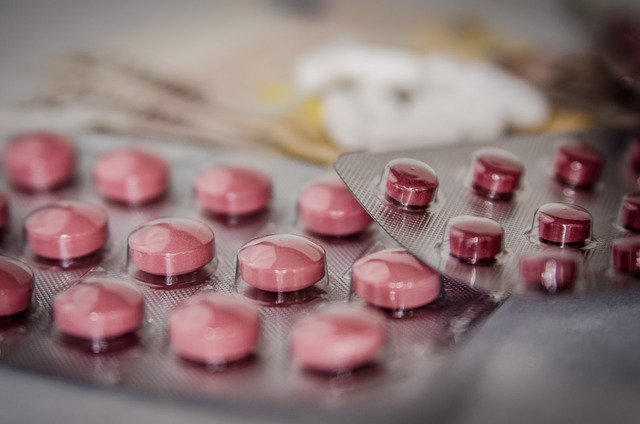Medications That Can Affect Kidney Health: Signs, Risks, and Key Information
Medications play an essential role in managing chronic conditions and improving quality of life. However, certain drugs can place significant strain on the kidneys, sometimes leading to long-term damage. Known as drug-induced kidney injury (DIKI), this condition may develop slowly or occur suddenly, depending on the type of medication and dosage. Understanding which medications pose risks, along with recognizing early symptoms of kidney dysfunction, is crucial for protecting long-term kidney health.

The kidneys are remarkable organs that filter approximately 200 quarts of blood daily, removing waste products and excess fluid that become urine. However, this filtering process makes kidneys vulnerable to damage from certain medications. When medications are processed through the kidneys, they can sometimes cause injury to kidney tissues, affecting overall function and potentially leading to both acute and chronic kidney problems. Understanding the relationship between medications and kidney health is crucial for anyone taking prescription or over-the-counter drugs regularly.
Medications That May Harm the Kidneys
Several classes of commonly prescribed and over-the-counter medications have been associated with potential kidney damage. Nonsteroidal anti-inflammatory drugs (NSAIDs) like ibuprofen, naproxen, and aspirin can reduce blood flow to the kidneys when taken regularly or in high doses. Certain antibiotics, particularly aminoglycosides like gentamicin, can accumulate in kidney cells and cause damage. Proton pump inhibitors (PPIs) used for acid reflux, such as omeprazole and esomeprazole, have been linked to increased risk of chronic kidney disease with long-term use. Additionally, some blood pressure medications, chemotherapy drugs, and certain contrast dyes used in imaging studies can also impact kidney function. Even common medications like acetaminophen can affect kidney health when taken in excessive amounts or combined with other kidney-stressing substances.
Recognizing the Symptoms of Kidney Damage
Identifying kidney damage early is critical for preventing progression to more serious conditions. Unfortunately, kidney damage often produces subtle symptoms that can be easily overlooked. Changes in urination patterns, such as decreased output, increased frequency, or changes in urine color (darker or foamy) may indicate kidney stress. Swelling in the feet, ankles, legs, or hands due to fluid retention is another common sign. Fatigue, shortness of breath, and confusion can result from waste buildup in the bloodstream. Persistent itching, metallic taste in the mouth, and loss of appetite are additional symptoms that warrant attention. Many people experience no symptoms until kidney function has declined significantly, which highlights the importance of regular kidney function testing for those taking potentially nephrotoxic medications.
Risk Factors and Prevention Strategies
Certain individuals face higher risks of medication-induced kidney damage. Those with pre-existing kidney disease, diabetes, high blood pressure, or heart disease should be particularly cautious about medication choices. Older adults are also at increased risk due to age-related decline in kidney function and the likelihood of taking multiple medications simultaneously. Dehydration can concentrate medications in the kidneys, potentially increasing toxicity. Prevention strategies include maintaining adequate hydration, following medication dosing instructions precisely, and avoiding combining multiple kidney-stressing drugs when possible. Regular kidney function monitoring through blood tests like creatinine and BUN (blood urea nitrogen) levels can help detect problems early. Always inform healthcare providers about all medications being taken, including over-the-counter drugs, supplements, and herbal remedies.
Monitoring and Support for Kidney Health
Regular monitoring is essential for those taking medications that may affect kidney function. Healthcare providers typically use blood tests to measure creatinine levels and calculate estimated glomerular filtration rate (eGFR), which indicates how well kidneys are filtering blood. Urinalysis can detect protein or blood in urine, which may signal kidney damage. For high-risk patients, more frequent testing may be recommended. Supporting kidney health while on necessary medications involves several strategies. Maintaining proper hydration helps kidneys filter waste effectively. Following a kidney-friendly diet that limits sodium, processed foods, and excessive protein can reduce stress on these organs. Managing underlying conditions like diabetes and hypertension is crucial, as these diseases can compound medication-related kidney risks. In some cases, medication adjustments or alternatives may be necessary to protect kidney function.
Medication Management and Alternatives
When medication poses a risk to kidney health, several management approaches may be considered. Dose adjustments based on kidney function can help minimize damage while maintaining therapeutic benefits. Temporary discontinuation of certain medications during acute illness, especially when dehydration is likely, may protect kidney function. For chronic pain management, alternatives to NSAIDs might include acetaminophen (in appropriate doses), physical therapy, or topical pain relievers. When antibiotics are necessary, kidney-friendly options may be selected, or doses carefully calculated based on kidney function. Proton pump inhibitors might be replaced with H2 blockers or used at the lowest effective dose for the shortest duration possible. Never discontinue prescribed medications without consulting a healthcare provider, as the risks of untreated conditions often outweigh potential kidney concerns.
Treatment Options for Medication-Induced Kidney Damage
If medication-related kidney damage occurs, treatment approaches vary depending on severity. Acute kidney injury may require hospitalization, intravenous fluids, and temporary discontinuation of the offending medication. In severe cases, dialysis may be needed to support kidney function until recovery. For chronic kidney disease resulting from medication exposure, treatment focuses on slowing progression through careful blood pressure control, diabetes management, and dietary modifications. Regular monitoring becomes even more critical to track disease progression and adjust treatments accordingly. Kidney specialists (nephrologists) typically manage more advanced cases and can provide specialized guidance on medication safety. With early intervention, some medication-induced kidney damage may be reversible, highlighting the importance of prompt recognition and response to symptoms.
This article is for informational purposes only and should not be considered medical advice. Please consult a qualified healthcare professional for personalized guidance and treatment.




